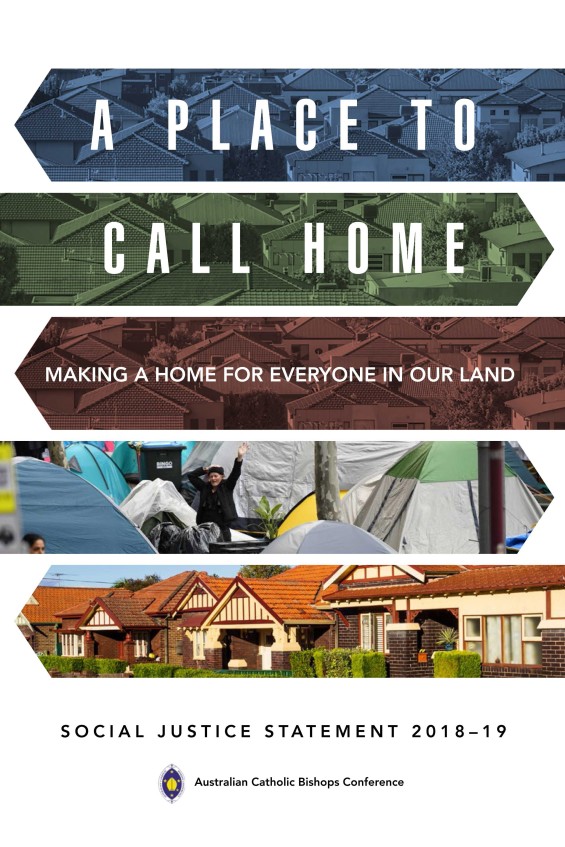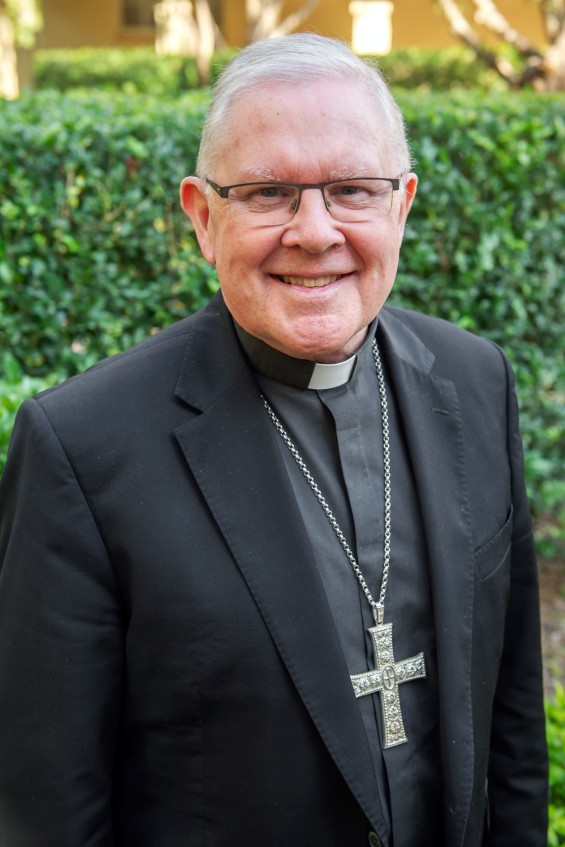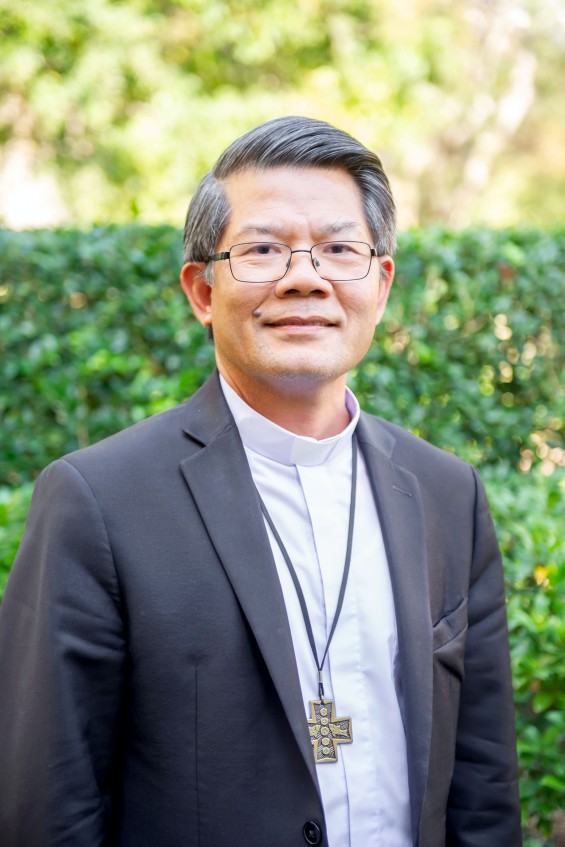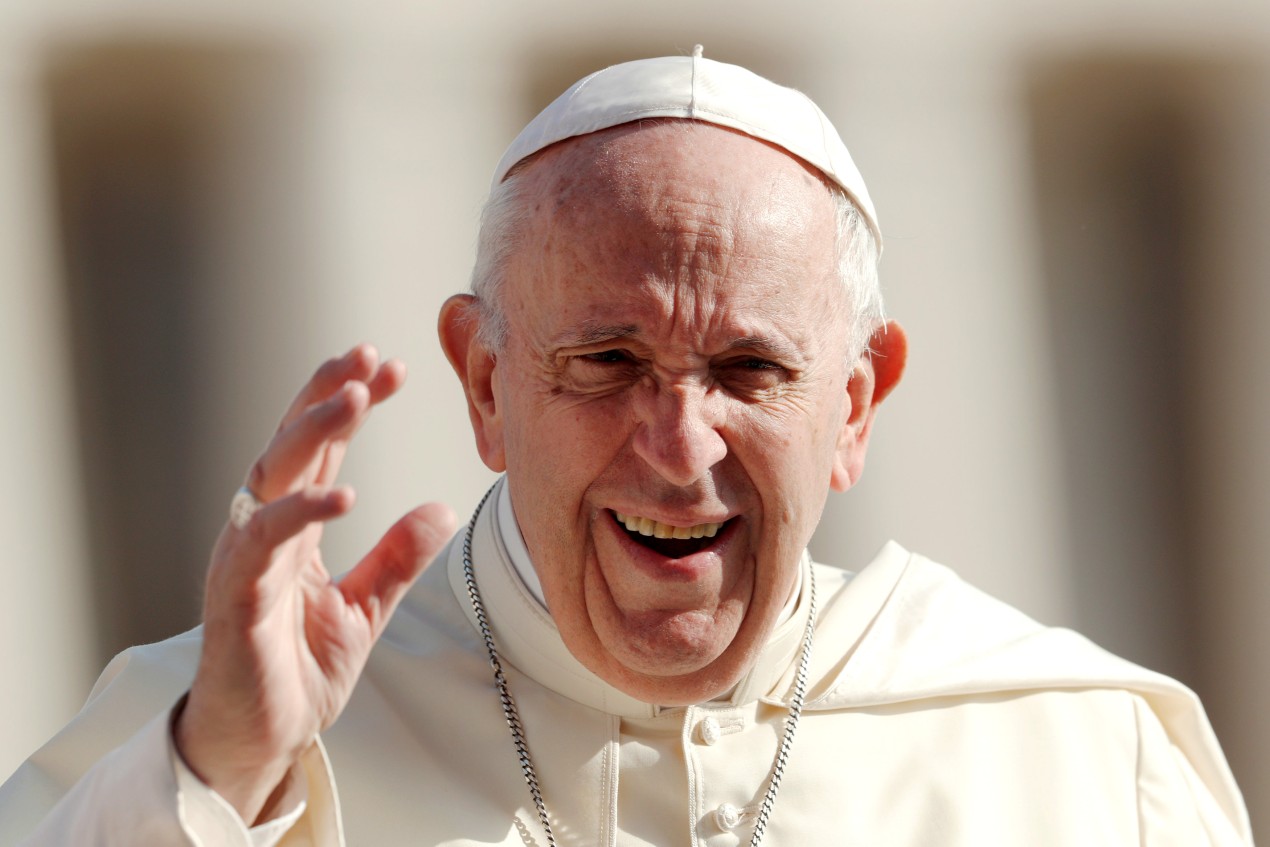Bishops confront challenge of homelessness in 2018-2019 Social Justice Statement

The 2018–2019 Social Justice Statement of the Australian Catholic Bishops Conference, titled “A Place To Call Home: Making a home for everyone in our land”. Image: Sourced.
By Theresia Titus
The Australian Catholic Bishops’ Conference (ACBC) has this week called for Australians to consider those who are at risk of homelessness and housing insecurity in their just launched Social Justice Statement on 6 September at St Patrick’s Cathedral Hall, Parramatta NSW.
Titled “A Place to Call Home: Making a home for everyone in our land”, the statement is produced through the Australian Catholic Social Justice Council (ACSJC), an agency of the ACBC.

President of the Australian Catholic Bishops’ Conference Archbishop Mark Coleridge. Photo ACBC.
In his letter to parishes in Australia, President of the ACBC Archbishop Mark Coleridge said that the statement “is a response to the growing problem of homelessness in Australia”.
“It seems hard to believe that in a rich nation such as ours, the latest Census figures show that the number of Australians who are homeless has grown to more than 116,000,” Archbishop Coleridge wrote.
“House prices and even rents are spiralling out of reach of too many families and placing huge financial stress on ordinary people, even when they are employed.
“For those living on pensions or allowances, finding secure housing can be a far greater challenge – one that often takes a terrible toll on social wellbeing and mental health,” he continues.
The 2018-2019 Statement took the drawing Jesus’ famous parable of the Good Samaritan from the Gospel of Luke 10:30-35 as its scriptural foundation.

Chairman of Australian Catholic Social Justice Council, Bishop of Parramatta Vincent Long Van Nguyen. Photo: ACBC.
In his foreword statement, Chairman of ACSJC, Bishop of Parramatta Vincent Long Van Nguyen mentioned the renowned parable is “as challenging to us today as it was to his hearers”.
“We are reminded that we have the same experience as the Samaritan: we see people in the street who are in need of help wounded by violence, misfortune or poverty,” Bishop Long wrote.
“We face the same choice: do we walk past or do we stop and help?”
“Behind the people on the streets is another legion – those who are battling to keep the roof over their heads, wondering if they can make the next rent or mortgage payment.
“Often, these are people who are employed but whose income is barely enough – or not enough – to keep themselves and their families housed and fed,” Bishop Long explained.
Bishop Long also wrote, “ruthless housing markets leave people struggling to find secure and affordable housing, whether they live in cities or regional areas”.
“That struggle has a corrosive effect on family life, on employment, on the study and on our capacity to contribute to and benefit from our society.
“At its worst, the struggle leaves the vulnerable in our society homeless – sleeping on the street, in cars or doorways, or hoping for space on someone’s couch or floor,” Bishop Long wrote.
The statement begins by explaining Jesus’ parable of Good Samaritan, how through the parable “Jesus challenges as individuals and as a nation”, that “it is time for Australia to reassert the true value of housing as a human right that is fundamental to individual and family wellbeing”.
One of the critical points the statement draws on is the emphasis that “housing is a human right” and “a house is not merely an investment whose values determined by the laws of supply and demand”.
To have a place called home, as the statement states, is indispensable for a person’s sense of self, for personal security and the growth and wellbeing of families and the community as a whole.
The statement also points out how Australia, a country which “once prided itself on high levels of home ownership”, currently has a declining rate of homeownership.
“In 1947, 52 per cent of Australians owned their own homes. By the mid-1960s, that proportion had grown to 72 per cent. Since that time, however, homeownership rates have fallen to around 65 per cent.
“Since the early 1990s, the greatest decline in home ownership has been for people in the prime of their working lives. It is likely that an increasing number of people currently under 55 years of age will enter their retirement not owning a home or still paying off a mortgage.”
The statement says global surveys have put major Australian cities as the least affordable housing markets in the world.
The Australian housing market has become more overpriced which put pressured to vulnerable Australians.
These vulnerable Australians, as the statement lists, are people in the low-income household or experiencing family crisis such as domestic violence and mental illness, older people who classified as “fastest growing group exposed to homelessness”.
Unemployed people relying on government supports, ex-prisoners, Aboriginal and Torres Strait Islander people who “makeup 3.3 per cent of the Australian population but 20 per cent of people who are homeless” and refugees or asylum seekers who arrive in Australia without or little financial resources are also among those vulnerable to homelessness.
The statements emphasise that there is a real cost to society and thus the Bishops called on the Government to make difficult political decisions to make the housing market more affordable.
The Bishops also called the Church and community to continue the work in social services such as the formation of a new initiative, Australian Catholic Housing Alliance (ACHA) “to find ways of diverting unused or underused Church property towards affordable housing.
Most importantly, the Bishops has called on every person to be welcoming towards homeless people, lend a hand and raise awareness.

Pope Francis waves as he arrives to lead his general audience in St Peter’s Square, Vatican. Photo: CNS photo/Alessandro Bianchi, Reuters.
On the first World Day of the Poor, Pope Francis restated one of the central challenges to every person: “to overcome a culture of indifference that deadens us to the suffering of others”.
“Indifference. It is when we say, ‘That doesn’t regard me; it’s not my business; it’s society’s problem’,” the Holy Father said.
“It is when we turn away from a brother or sister in need when we change channels as soon as a disturbing question comes up when we grow indignant at evil but do nothing about it.
“God will not ask us if we felt righteous indignation, but whether we did some good,” Pope Francis added.
To order the 2018-2019 Social Justice Statement and associated resources from the ACSJC, please go to the ACSJC website, www.socialjustice.catholic.org.au, or call (02) 8306 3499, fax (02) 8306 3498, email admin@acsjc.org.au or the ACBC website: www.catholic.org.au.
